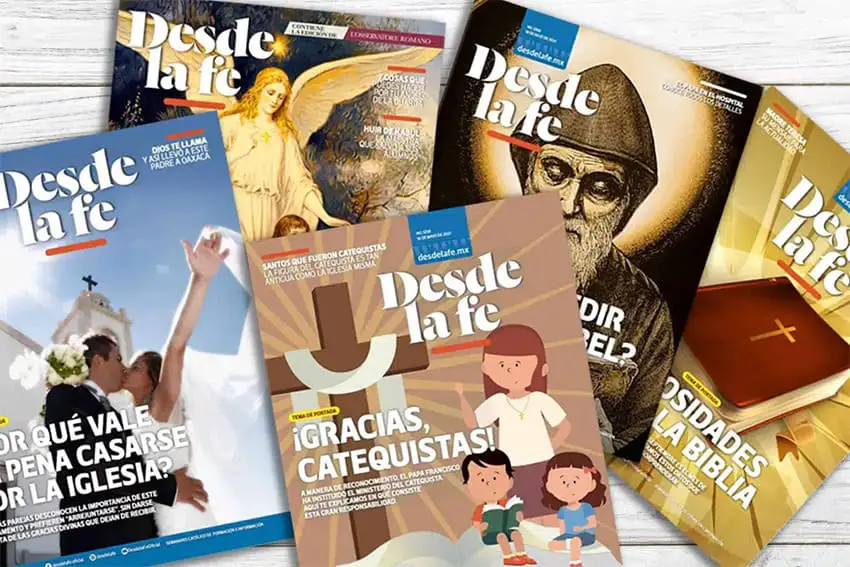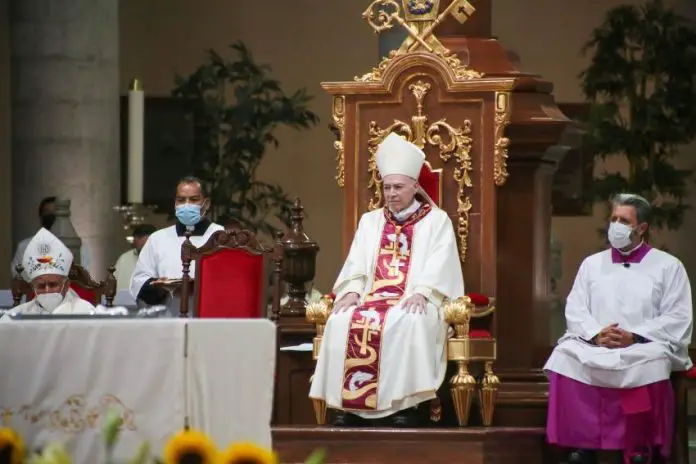The Catholic Church in Mexico has urged President-elect Claudia Sheinbaum and other incoming politicians to prioritize the construction of national reconciliation in a recently published editorial.
The plea came on Saturday in Desde la Fe, the official publication of the Roman Catholic Archdiocese of Mexico.
“We call on our president-elect, her working group and all elected politicians who will soon take office to promote during this period of transition the path toward building a reconciliation with solid foundations, which helps to overcome the conflicts that divide us, strengthens national unity and opens the doors to dialogue and mutual listening. We are convinced that in this way we will achieve social peace,” the editorial said.
Sheinbaum will be sworn in as Mexico’s first female president on Oct. 1, while federal lawmakers elected at the June 2 elections will assume their positions a month earlier.
The Catholic Church also invited citizens “to join this collective effort for reconciliation because the construction of a united country requires the joining of efforts.”
“In addition, the majority of reconciliation activities occur in small groups, in families, among friends, at work, and from there they grow until they strengthen into an action that can unite millions,” the editorial said.

While Sheinbaum and the ruling Morena party won comprehensive victories on June 2, there is little doubt that Mexico is a politically polarized nation.
President Andrés Manuel López Obrador has maintained high approval ratings throughout his six-year term, but millions of Mexicans believe that he — and the president-elect — pose a threat to Mexico and its democratic institutions, in part due to the constitutional reform proposals the president submitted to Congress earlier this year and which Sheinbaum supports.
The polarization is related to inequality in Mexico, as well-known journalist Denise Maerker pointed out shortly after the election.
In its editorial, the Catholic Church sought to explain what real reconciliation would entail.
“When we talk about reconciliation we’re not referring to a fragile peace, much less a forced embrace or a commitment that only seeks to please groups that think differently. A reconciliation that has these individualistic foundations and with partial interests runs the risk of breaking quickly,” the Church said.
It also said that “the path to reconciliation is not about a fight between good or bad or “a clash of ideologies.”
“It means learning to walk together,” the Church said.
“When we talk about reconciliation we’re referring to coming to terms with events that have hurt us, that have caused suffering,” the editorial said, without offering specific details.
“… We’re talking about coming together to renew ourselves and grow together. Finding ourselves in that place where we stop thinking selfishly and individually in order to recognize ourselves as brothers, looking into each other’s eyes, embracing our histories and differences,” the Church said.
The publication of the editorial coincides with Pope Francis’ call for prayers for political leaders in August, specifically that they “be at the service of their own people, working for integral human development and for the common good, especially caring for the poor and those who have lost their jobs.”
The Catholic Church in Mexico suggested that readers of its editorial should ask God for “the gifts” required to be “builders of peace and reconciliation.”
There is considerable expectation that Sheinbaum will be less confrontational than López Obrador, who often uses his morning press conference to attack political opponents, a tactic that many say foments, or at least contributes to, divisiveness in Mexico.
In a speech last Thursday after receiving official documentation confirming her victory on June 2, the president-elect pledged to govern for all Mexicans.
In March, Sheinbaum and the two other candidates who contested the presidential election endorsed a “Commitment for Peace” document drawn up by Mexico’s Roman Catholic leadership.
However, the then Morena party candidate and now president-elect expressed disagreement with the Church leaders’ assessment of Mexico’s security situation and some of the peace-building proposals they put forth.
Mexico News Daily
